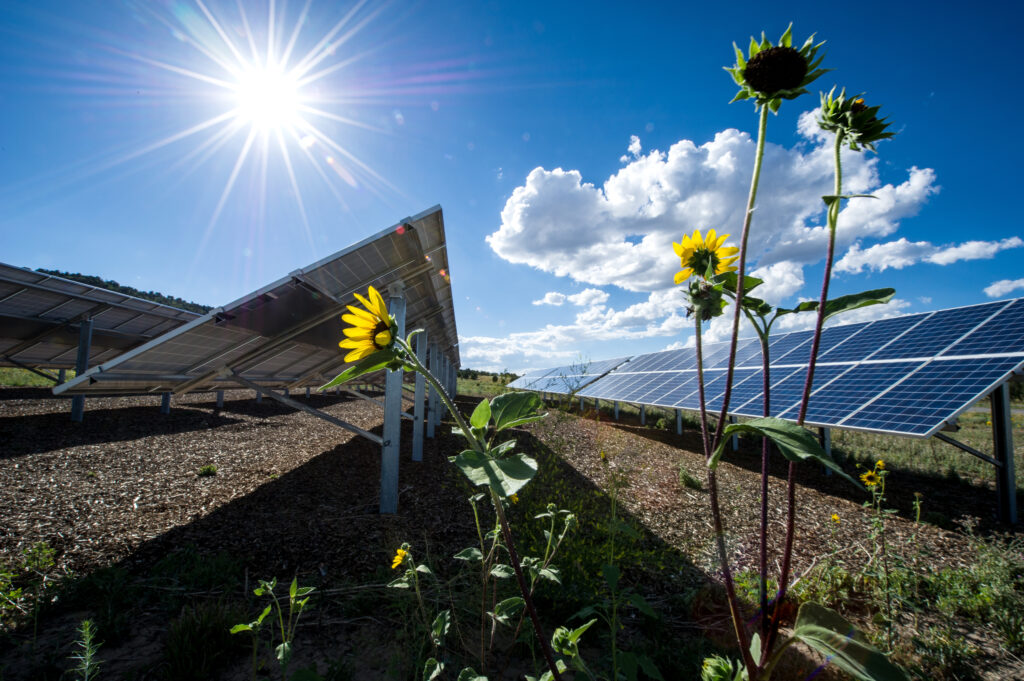In the heart of Eurasia, where Europe and Asia converge, Turkey is experiencing an energy revolution of remarkable significance. This article delves into the pivotal legal and regulatory framework that underpins the development, financing, operation, and sale of renewable energy in the Turkish electricity market. We unveil the government’s steadfast commitment to renewable energy through a comprehensive framework of incentives and policies such as feed-in tariffs, tax benefits, and support mechanisms. We navigate the complexities of the legal and regulatory landscape, providing clarity for investors, developers, and operators in the renewable energy sector. With guidance from legal experts at Bicak, a recognized authority in Turkish energy law, we offer a roadmap for success in Turkey’s burgeoning renewable energy market. Turkey’s journey toward renewable energy is not only redefining its energy landscape but also making a significant impact on environmental preservation and global energy transformation.
Legal Landscape of Renewable Energy in Turkey
In Turkey, a compelling transformation is underway as the nation embraces renewable energy as a cornerstone of its energy future. As the world grapples with the imperatives of combating climate change and transitioning to greener energy alternatives, Turkey has emerged as a dynamic player in the global renewable energy arena. This transformation has not only enhanced the nation’s energy security but has also positioned it as a pivotal actor in the broader quest for a more sustainable planet.
With the assistance of legal experts from Bicak, a leading authority on energy law in Turkey, we aim to provide a comprehensive understanding of the legal and regulatory landscape for renewable energy actors in the country. Whether you are an investor, developer, or operator in the renewable energy sector, this article serves as your compass, guiding you through the opportunities and challenges that define Turkey’s renewable energy journey.
Definition
Renewable energy refers to energy derived from naturally occurring and replenishable sources. These sources of energy are considered sustainable because they can be naturally replenished within a relatively short period, making them an environmentally friendly alternative to fossil fuels and other non-renewable energy sources.
Renewable energy sources
Here are some concrete examples of renewable energy sources:
- Solar Energy: Solar energy is generated by capturing the sunlight using photovoltaic cells (solar panels). These cells convert sunlight into electricity, which can be used to power homes, businesses, and even entire cities. Solar energy is abundant and inexhaustible, as the sun continually radiates energy.
- Wind Energy: Wind turbines harness the kinetic energy of wind to generate electricity. As the wind blows, it turns the blades of the turbine, which then drives a generator to produce electrical power. Wind energy is a clean and sustainable source of electricity.
- Hydropower (Hydroelectric Energy): Hydropower is generated by the movement of water, typically in rivers or dams. Water flows or falls over turbines, which convert the kinetic energy of the water into electricity. Hydroelectric power plants are a well-established source of renewable energy worldwide.
- Biomass Energy: Biomass energy is produced from organic materials like wood, crop residues, and even municipal solid waste. These materials can be burned or converted into biofuels to generate heat or electricity. Biomass is considered renewable because new crops and organic waste continue to grow and accumulate.
- Geothermal Energy: Geothermal energy is derived from the heat within the Earth’s core. It can be harnessed by drilling deep wells to access hot water or steam, which is then used for heating buildings or generating electricity. Geothermal energy is sustainable because the Earth’s heat is virtually inexhaustible.
- Tidal and Wave Energy: Tidal and wave energy capture the movement of ocean tides and waves to generate electricity. These sources of energy rely on the predictable and cyclical nature of oceanic movements.
- Ocean Thermal Energy: Ocean thermal energy uses the temperature difference between the warm surface water and the cold deep water in the ocean to generate power. While less commonly utilized than other renewables, it is a promising technology for certain regions.
Renewable energy sources have gained popularity due to their lower environmental impact, reduced greenhouse gas emissions, and long-term sustainability. They play a crucial role in transitioning away from fossil fuels and mitigating climate change while providing a reliable and clean source of power for various applications.
Legal and regulatory framework
The legal and regulatory framework applicable to developing, financing, operating, and selling power and environmental attributes from renewable energy in Turkey is governed by a combination of laws, regulations, and institutions. Here’s an overview of the key elements of this framework:
- Renewable Energy Law (No. 5346): This is the foundational law governing renewable energy in Turkey. It establishes the legal basis for the promotion, production, and utilization of renewable energy sources. The law outlines the mechanisms for feed-in tariffs, purchase guarantees, and incentives for renewable energy projects.
- Electricity Market Law (No. 6446): The Electricity Market Law regulates the electricity market in Turkey. It sets the rules for the generation, transmission, distribution, and sale of electricity. It includes provisions related to renewable energy generation, including grid connection, licensing, and market operation.
- Renewable Energy Resource Areas (YEKA) Regulation: YEKA regulations define the framework for tenders and projects in renewable energy resource areas. They specify the rules for project development, auction processes, and licensing.
- Energy Market Regulatory Authority (EMRA): EMRA is the primary regulatory authority overseeing the energy sector in Turkey. It grants licenses, monitors compliance, and regulates electricity prices, among other responsibilities.
- Feed-in Tariffs and Renewable Energy Support Mechanisms: Turkey has implemented various support mechanisms, including feed-in tariffs, for renewable energy projects. These mechanisms guarantee a fixed price for electricity generated from renewable sources for a specific period.
- Power Purchase Agreements (PPAs): PPAs are contracts between renewable energy producers and authorized off-takers (usually the Turkish Electricity Transmission Corporation – TEİAŞ or distribution companies). They stipulate the terms and conditions for selling electricity and the duration of the agreement.
- Environmental Impact Assessment (EIA) Regulation: Renewable energy projects may require an EIA process to evaluate their environmental impact and ensure compliance with environmental regulations.
- Electricity Market Licensing Regulation: This regulation sets out the procedures and requirements for obtaining licenses for electricity generation, including renewable energy projects.
- Carbon Pricing and Environmental Attributes: Turkey has introduced measures related to carbon pricing and environmental attributes, such as renewable energy certificates (RECs), to promote environmental sustainability and compliance with international standards.
- Renewable Energy Incentives: Various incentives, including tax exemptions and reduced customs duties on renewable energy equipment, are available to encourage investment in renewable energy projects.
- Bilateral Agreements and International Treaties: Turkey has entered into agreements and treaties related to renewable energy with other countries and international organizations, influencing aspects of the regulatory framework.
The legal and regulatory framework for renewable energy in Turkey is complex and subject to periodic updates. Therefore, it is essential for developers, investors, and operators in the renewable energy sector to work closely with legal and regulatory experts who specialize in Turkish energy law to ensure compliance and navigate the evolving landscape effectively.
Incentives and policies
Te Turkish government has implemented various incentives and policies to promote the development of renewable energy projects in the country. These measures are designed to encourage investment, increase the share of renewable energy in the energy mix, and reduce greenhouse gas emissions. Some of the key incentives and policies include:
- Feed-in Tariffs (FiTs): The Turkish government has offered FiTs for renewable energy projects as a way to guarantee a fixed purchase price for electricity generated from renewable sources. FiTs provide long-term price stability and predictability for investors, making renewable energy projects financially attractive.
- Renewable Energy Support Mechanisms: In addition to FiTs, Turkey has introduced various support mechanisms, such as the Renewable Energy Resources Support Mechanism (YEKDEM). These mechanisms provide additional payments to renewable energy producers, further incentivizing investment in the sector.
- Tax Incentives: The government offers tax incentives, including exemptions from value-added tax (VAT) and customs duties, for renewable energy equipment and materials. This reduces the upfront costs of renewable energy projects.
- Investment Support: Various government agencies provide support for renewable energy investments. This can include financial support, project financing options, and facilitation of access to funding sources.
- Licensing and Permitting Streamlining: The Turkish government has taken steps to streamline the licensing and permitting processes for renewable energy projects, reducing bureaucratic hurdles and delays.
- Renewable Energy Certificates (RECs): Turkey has introduced RECs to track and certify the renewable origin of electricity. This system helps promote transparency and compliance with renewable energy targets.
- Net Metering: The government allows net metering for renewable energy systems, enabling consumers to offset their electricity bills by generating excess energy from renewable sources and feeding it back into the grid.
- Research and Development Support: The government provides funding and support for research and development activities related to renewable energy technologies, encouraging innovation in the sector.
- International Cooperation: Turkey participates in international initiatives and collaborations related to renewable energy, which can lead to knowledge sharing and best practices.
- Renewable Energy Targets: Turkey has set renewable energy targets as part of its energy policy. These targets include increasing the share of renewables in the energy mix, promoting energy efficiency, and reducing greenhouse gas emissions.
These incentives and policies demonstrate the Turkish government’s commitment to fostering a favorable environment for renewable energy development. They have contributed to the growth of renewable energy projects in the country, including wind, solar, hydro, and geothermal energy, among others.
Legal assistance
At Bicak, we understand that the renewable energy sector in Turkey is booming, offering unparalleled opportunities for both local and international actors. Whether you are an investor, developer, or operator in renewable energy projects, navigating the intricate legal landscape is crucial for success. That’s where we come in.
- Tailored Legal Expertise: Our legal team specializes in the intricacies of the Turkish electricity market, with a strong focus on renewable energy. We are committed to providing tailored legal solutions that align with your unique goals and challenges.
- Project Development: From project inception to completion, we offer comprehensive legal support to ensure your renewable energy initiatives are structured efficiently, licensed appropriately, and comply with all regulatory requirements. Our expertise covers wind, solar, hydro, geothermal, and biomass projects.
- Regulatory Compliance: Navigating the ever-evolving regulatory framework can be daunting. Our legal experts keep a keen eye on legislative changes, ensuring your projects remain compliant with the latest laws and regulations. We handle licensing, permitting, and environmental compliance to mitigate risks and enhance project viability.
- Power Purchase Agreements (PPAs): We excel in negotiating and drafting PPAs, enabling you to secure favorable terms and long-term revenue streams for your renewable energy ventures. Our legal acumen ensures your interests are well-protected.
- Tax and Incentives Optimization: Maximizing the financial benefits of your renewable energy investments is essential. We provide guidance on tax incentives, customs duties, and VAT exemptions, helping you reduce costs and enhance project returns.
- Dispute Resolution and Conflict Mitigation: In the event of disputes or challenges, our experienced litigators are well-equipped to represent your interests effectively. We aim for swift and favorable resolutions, minimizing disruptions to your renewable energy operations.
- Sustainability and Environmental Attributes: We assist in navigating sustainability initiatives and environmental attribute programs, including the trading of renewable energy certificates (RECs), ensuring your projects align with international standards.
- International Partnerships: With a global outlook, we foster international partnerships to facilitate collaboration and knowledge sharing, enriching your renewable energy endeavors.
At Bicak, we don’t just provide legal services; we are your strategic partners in realizing the full potential of renewable energy in Turkey. Join us in shaping a sustainable and clean energy future. Contact us to explore how our legal expertise can empower your renewable energy initiatives in the Turkish electricity market.
 English
English Türkçe
Türkçe Français
Français Deutsch
Deutsch










Comments
No comments yet.